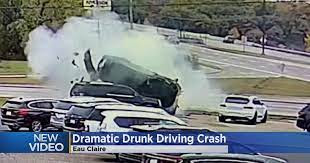Cameras are not typically used to directly catch drunk drivers.
Instead, law enforcement agencies primarily rely on field sobriety tests, breathalyzers, and blood tests to determine if a driver is under the influence of alcohol or drugs.
These cameras can indirectly assist in catching drunk drivers in certain situations. For example, traffic cameras or surveillance cameras installed on roadways can capture footage of suspicious driving behavior, such as swerving, reckless driving, or running red lights, which may indicate impairment. Law enforcement authorities can review such footage and use it as evidence to support their case against a suspected drunk driver.
Specific methods and technologies used for detecting and apprehending drunk drivers can vary by jurisdiction. Some regions may employ more advanced technologies, such as automatic license plate readers or mobile breathalyzer units, to enhance enforcement efforts. However, the use of cameras alone to directly catch drunk drivers is not a common practice.
A Melbourne company responsible for mobile phone detection cameras is developing new cameras to identify alcohol- and drug-affected drivers.
Can Traffic Cameras Be Used As Evidence?
Yes, traffic cameras can be used as evidence in certain circumstances. Traffic cameras, also known as surveillance cameras or red-light cameras, are often installed at intersections or along roadways to monitor traffic conditions and enforce traffic laws. The footage captured by these cameras can serve as valuable evidence in various legal situations, including traffic violations and accidents.
When an incident occurs, such as a car accident or a traffic violation, law enforcement authorities or legal professionals may request access to the camera footage as part of their investigation. The footage can be used to identify the parties involved, determine the sequence of events, establish fault, or provide supporting evidence in a legal case.
It's important to note that the admissibility of traffic camera footage as evidence can depend on several factors, including local laws, the quality and reliability of the footage, the chain of custody of the recording, and any applicable privacy regulations. Legal procedures and requirements regarding the use of traffic camera footage as evidence can vary by jurisdiction, so it's essential to consult local laws and legal professionals for specific guidance in a particular case.

